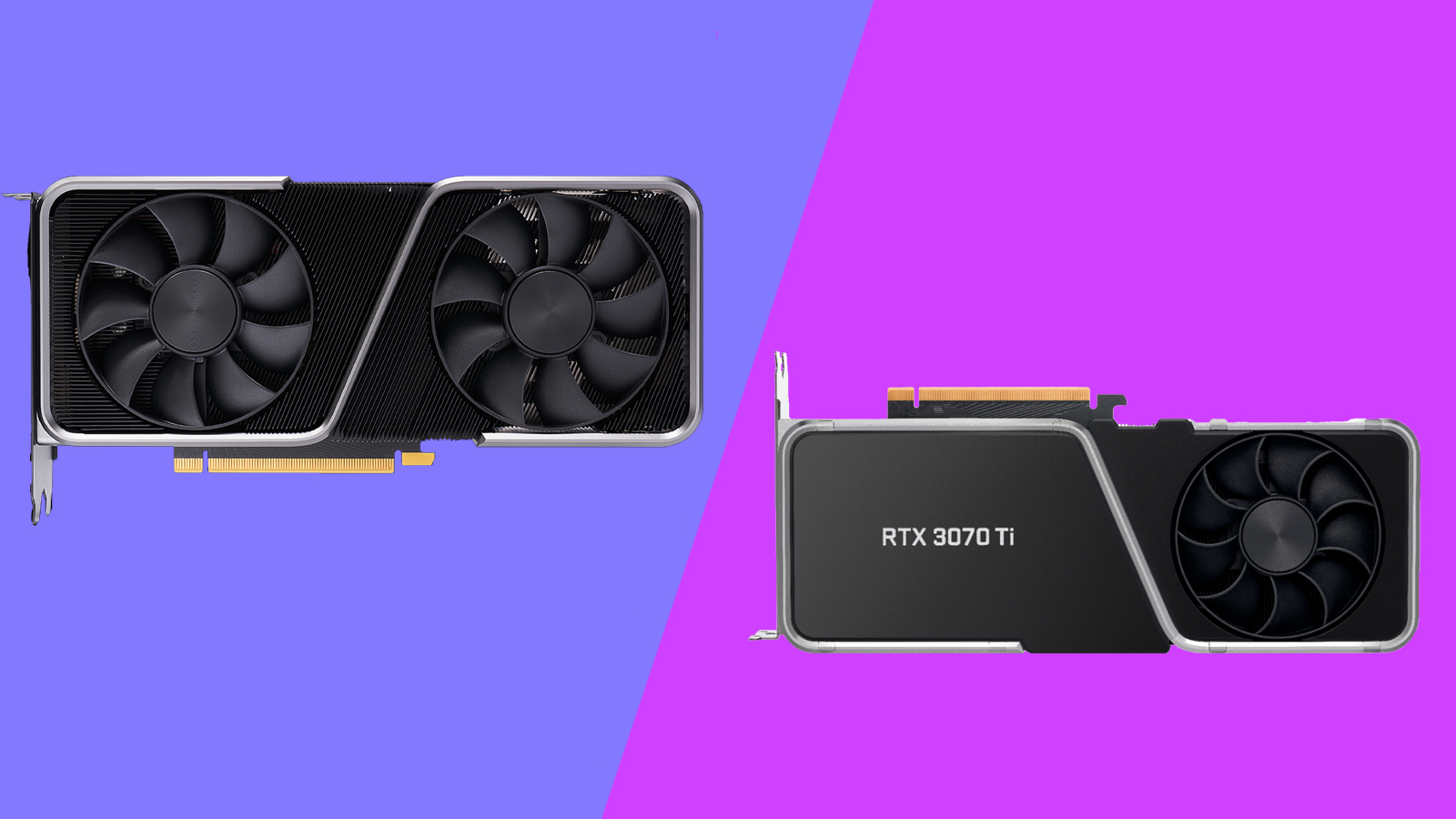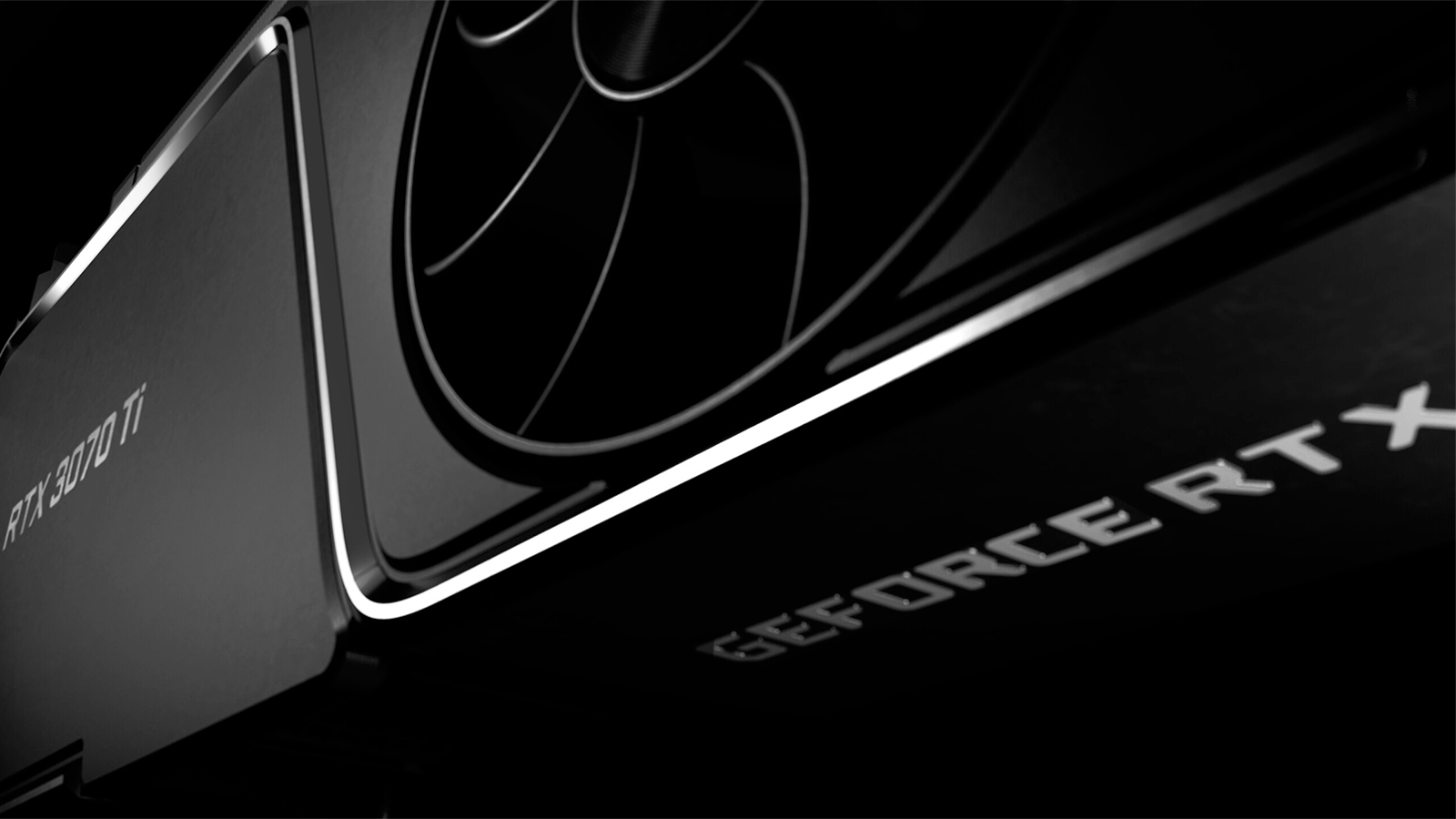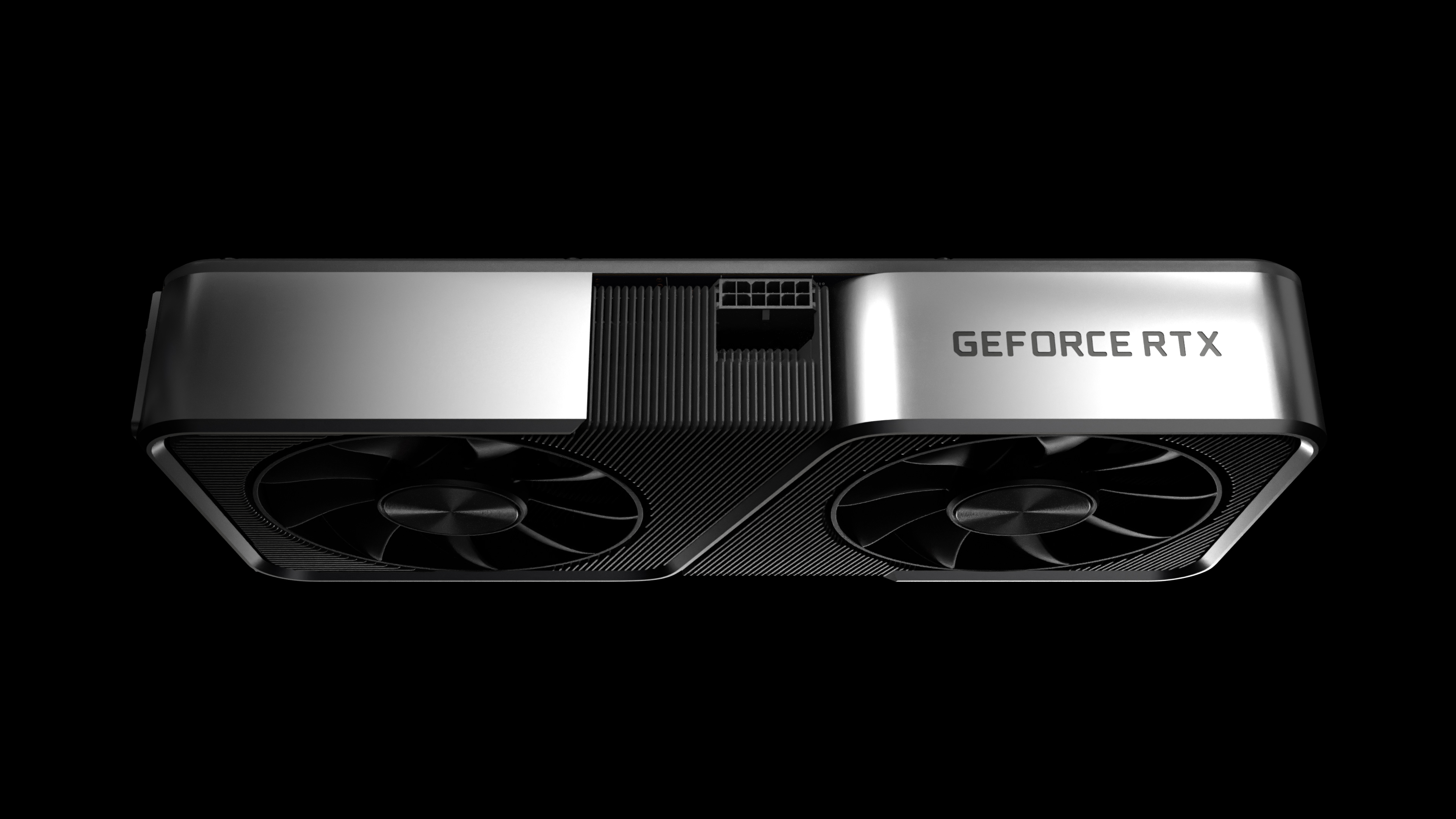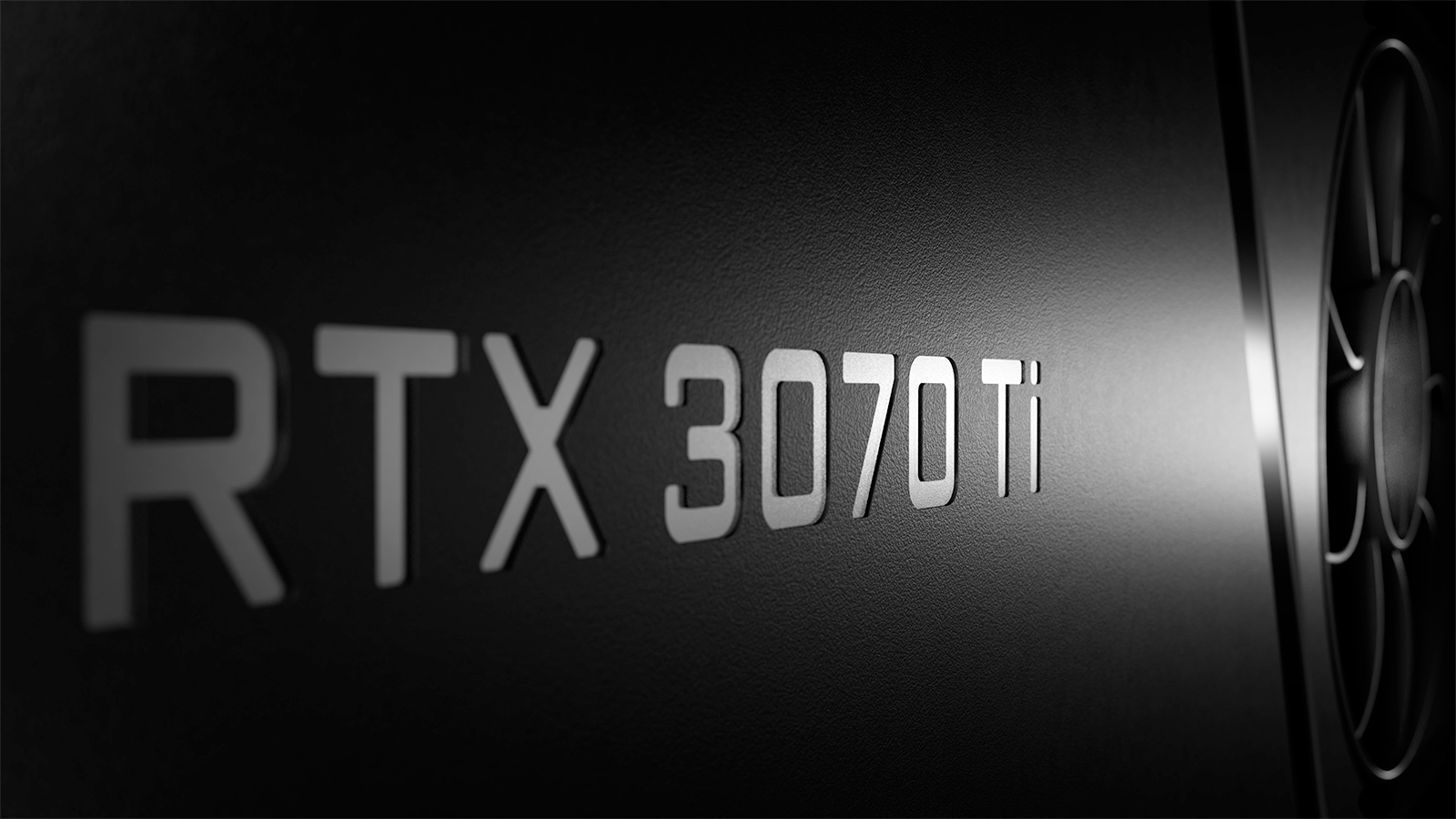RTX 3070 vs RTX 3070 Ti

The Nvidia GeForce RTX 3070 Ti is Team Green's follow up to one of the most popular Nvidia Ampere cards out there and the current champion of 1440p gaming, the RTX 3070. The RTX 3070 Ti promises even better performance when playing the best PC games, but looking at the RTX 3070 Ti versus RTX 3070 cards currently on the market, is the extra performance worth the extra cost?
For now, with all the trouble figuring out where to buy RTX 3070 cards, that might not be that big of an issue. For most gamers, its coming down to what you can get - as we found when talking to gamers on line at a Best Buy for the RTX 3080 Ti launch back on June 3.
The real issue will be when the semiconductor issue eases up, stock becomes more available, and the prices for these cards stabilize. When that happens, people in the market for the best graphics card they can buy might be more discerning, or if someone is lucky enough to have the options to buy one or the other, looking at the RTX 3070 Ti versus RTX 3070 in terms of specs, performance, and price, will actually matter.

Nvidia RTX 3070 vs RTX 3070 Ti: price
Fortunately, the MSRP on the new Nvidia Ampere graphics cards haven't been as eye-watering as their Nvidia Turing predecessors were, but they still aren't cheap - especially the RTX 3090, which doesn't even pretend to be affordable. When it comes to the RTX 3070 Ti versus the RTX 3070, though, both cards are still within range of most gamers' budgets.
The RTX 3070 Ti Founders Edition sells for $599 / £529 / AU$979, with aftermarket cards from MSI, Asus, and others selling for more than that. Of course, that's all well and good, but with prices going up exponentially due to the exorbitant demand for these cards, you can expect to pay even more for the aftermarket cards - assuming you can find them.
The RTX 3070 Ti starts out $100 / £60 / $170 more than the RTX 3070, which starts at $499 / £469 / AU$809 for the Founders Edition.
This isn't unexpected, since the RTX 3070 Ti has better specs than the RTX 3070, but as we'll get into in a bit, the specs aren't that much better. As we wrote in our review of the RTX 3070 Ti, the improved performance of the RTX 3070 Ti doesn't come close to justifying the increase in price.
Sign up for breaking news, reviews, opinion, top tech deals, and more.
If the price of the RTX 3070 Ti comes down at any point, or if some future driver update drastically improves its performance, then maybe the RTX 3070 Ti could be competitive here, but as it stands, the RTX 3070 is still the better value.

Nvidia RTX 3070 vs RTX 3070 Ti: specs
On paper, the RTX 3070 Ti is a step up from the RTX 3070 in some noticeable areas:
- CUDA Cores: 6,144
- Boost Clock: 1.77GHz
- Base Clock: 1.575GHz
- VRAM: 8GB GDDR6X
- Memory Interface: 256-bit
- Memory Clock Speed: 1.188GHz
- TDP: 290W
So, how does that compare to the 3070's specs? This is what you're looking at with the RTX 3070:
- CUDA Cores: 5,888
- Boost Clock: 1.725GHz
- Base Clock: 1.5GHz
- VRAM: 8GB GDDR6
- Memory Interface: 256-bit
- Memory Clock Speed: 1.175GHz
- TDP: 220W
Comparing those two specs, you can see that while the RTX 3070 Ti has a greater number of CUDA cores, faster clock speeds, and GDDR6X VRAM rather than the RTX 3070's GDDR6, we're not talking about a massive leap here. Both the RTX 3070 and RTX 3070 Ti are using the GA104 GPU, but the RTX 3070 Ti runs the GA104-400-A1 while the RTX 3070 runs the GA104-300-A1. All that really means is that the RTX 3070 Ti maxes out what that particular chip is capable of in terms of specs, but the RTX 3070's chip is still pushing that limit as it is.
There are only 256 extra CUDA cores in the RTX 3070 Ti, for example. CUDA (Compute Unified Device Architecture) cores are a fancy way to say processors that the GPU uses to work through discrete, complex tasks in parallel. The more CUDA cores a GPU has, the faster it can divide-and-conquer a given rendering task every frame. The quicker it can work, the quicker it can feed those frames to its output, giving you a better framerate for gaming and other graphics intensive tasks.
When you're already working with 5,888 CUDA cores, the extra 256 cores are helpful, but that's only a 4.34% increase. So, if the number of CUDA cores translated directly into frames per second (they don't, but just for the sake of argument), and you were getting 100 fps on an RTX 3070, you would only get 104 fps on an RTX 3070 Ti. Again, it is an improvement, but not a huge one.
There are also some other important differences here. The memory clock speed for the RTX 3070 Ti is a good bit faster, and what this translates to is an effective throughput of 912GB/s for the RTX 3070 Ti versus the RTX 3070's 616GB/s. This does make for faster processing of graphics, but that extra 5Gbps of throughput only has an extra 256 CUDA cores to process all that extra data.
If the RTX 3070's CUDA cores are already running at full throttle with 616GB/s of bandwidth, so those extra 256 cores aren't going to burn through the bandwidth on their own. You're going to get a bottleneck regardless of the extra throughput. On the other hand, if the CUDA cores aren't all fully engaged, that extra bandwidth can theoretically give them more work to do.
One area where you might see a significant performance jump is with DLSS, since the whole point of that is to render a frame at lower resolutions and then up-sample it to a much higher one. In this case, that extra throughput could make a bigger impact on your gaming performance over the RTX 3070. But there aren't a whole lot of games out there right now that take advantage of DLSS, so it's really a matter of how much you plan to use that feature when it becomes more widely available in the future.

Nvidia RTX 3070 vs RTX 3070 Ti: which one should you buy?
So, should you buy the RTX 3070 Ti or the RTX 3070? At launch, it's probably not going to really matter, since both cards are almost impossible to find. Especially since for most gamers, they're just going to be happy to have the chance to buy a graphics card at all.
Once things have settled down and you have a genuine choice between the two, though, there's really very little reason to go for the RTX 3070 Ti unless you're one of the very few out there who is looking for a huge improvement in gaming performance with modest graphics settings. Otherwise, you're just not going to see the kind of improvement in high end performance to justify the extra cost.
At that point, you're already halfway to the RTX 3080, so you might as well just go for the much more powerful card where you'll see a huge jump in CUDA cores, which will translate into better performance at the high end. And since you're looking to upgrade to an Ampere card in the first place, you're probably doing so with 1440p or 4k gaming in mind.
If that's the case, even with the possible performance increase with DLSS from the RTX 3070 Ti vs RTX 3070 cards, you're going to get an even bigger boost to DLSS performance with the RTX 3080, making it the much better choice if you're looking for something better than the RTX 3070.
- These are the best GPUs of 2020

John (He/Him) is the Components Editor here at TechRadar and he is also a programmer, gamer, activist, and Brooklyn College alum currently living in Brooklyn, NY.
Named by the CTA as a CES 2020 Media Trailblazer for his science and technology reporting, John specializes in all areas of computer science, including industry news, hardware reviews, PC gaming, as well as general science writing and the social impact of the tech industry.
You can find him online on Bluesky @johnloeffler.bsky.social